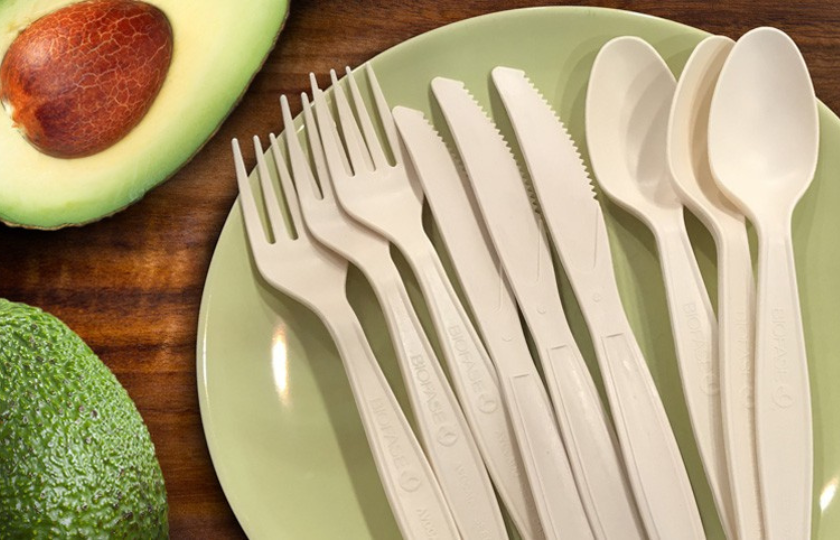Mexico-based startup Biofase has developed a cool solution to tackle plastic pollution, particularly on cutleries. The company is turning leftover avocado pits – often dumped in landfills – into eco-friendly and affordable forks, spoons, knives, and straws.
Did you know that an estimated 40 billion individual plastic utensils are used or wasted annually in the United States alone?
Unfortunately, most recycling facilities refuse to accept plastic utensils due to the high cost of recycling them.
As a result, these utensils often end up in landfills, where they can decompose for up to 1000 years. Alternatively, they may end up in the ocean, where they can pose a threat to many species.
To address this problem, Scott Mungia established Biofase 10 years ago after discovering that avocado seeds contain a polymer similar to the one in corn used to create bioplastic.
The company’s patented process uses technology to turn avocado pits into a bioplastic resin that can withstand high temperatures. It can also be moulded and cut to any shape, with no special recycling needed.
Because Biofase’s cutleries contain 60 per cent avocado biopolymer and 40 per cent synthetic organic compounds, they can degrade naturally in 240 days and be home-composted.
Because Mexico is home to many avocado farms, with pits readily available, Biofase shared that it could convert approximately 130 tonnes of avocado seeds into forks, knives, spoons, and straws.
“The whole world is changing – people are starting to ask for this,” said Munguia, “The main obstacle is the cost of producing bioplastics.”
Biofase currently ships its products across Mexico, Europe, and Australia, where they are primarily used in restaurants.



